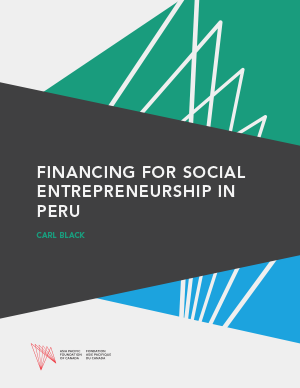The study finds that social enterprises in Peru have to a large extent relied on their founders, friends, and family to finance their businesses. Although many interviewees had approached banks and other formal financial institutions in Peru for financing, few have successfully received such financing. Access to finance for social enterprises from formal financial institutions in Peru is particularly limited for early-stage companies.
Access to finance for social enterprises from international impact funds has also been limited by a demonstrated preference of such funds for growth stage and mature companies with a positive financial track record. Investments by impact investors in Peru have focused on financial services. However, in recent years, while investments in this sector have remained steady, investments have been increasing in agriculture and other sectors.
Globally, the sustainable development goals provide an overarching framework through which to understand social entrepreneurship ecosystems. The goals link social entrepreneurs with impact investing, drawing attention to their similar mandates. To fulfil their missions, social entrepreneurs must be integrated into a broader ecosystem that includes government, investors, incubators, accelerators, and knowledge networks. Against that backdrop, the social entrepreneurship ecosystem in Peru is nascent. Important private and public sector programs and organizations are all relatively new, including Startup Peru, Innovate, Concytec, Kunan, and UPC’s Protagonistas del Cambio.
In short, the challenge for social enterprises in Peru is that the social entrepreneurship ecosystem in Peru is nascent with a lack of flexible, patient, catalytic, and risk-tolerant funding sources, particularly for early-stage enterprises outside of the financial services and agriculture sectors. The opportunity is for the government and the impact investment community to collaborate, to implement innovative approaches, to impact investing, and to catalyze the emerging social entrepreneurship ecosystem in Peru.
